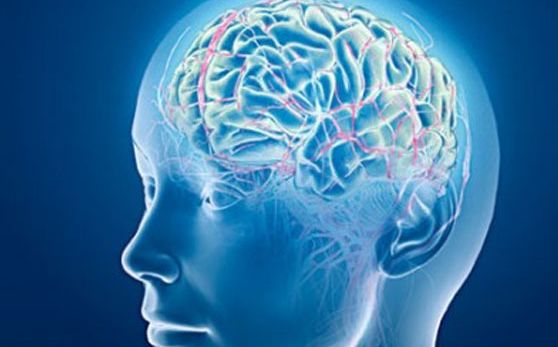First, let’s start in what dopamine is and why it’s extremely important. Dopamine develops from a specific amino generally known as Tyrosine. Dopamine is an extremely vital neurotransmitter with a host of various role’s it plays within the body, many of which helps to guide thinking processes. Memory, mental focus, concentration, emotional states, movement and sleeping are only a handful of those vital roles. It possesses a essential role in supporting both our both mental and physical health.

Dopamine comes from a place in the brain referred to as the substantia nigra. The substantia nigra can be a band of neurons that leave dopamine for the central nervous system (CNS). The way that the mind works is a highly complicated process of signals and nerve transmissions. Neurons within the brain actually release chemical messengers (known as neurotransmitters) through their synapses (nerve endings) that visit one other synapses and create specific signals. Neurotransmitter’s are constantly released in to the synapses and reabsorbed. This is the way your brain is able to communicate so quickly and efficiently.
Dopamine’s process within the mental faculties are highly complex, but I’ll make an attempt to break it into a level where running out of energy comprehend it. When uridine is released, it requires an area to look. Where it travels these are known as receptors. The dopamine molecule fits together like a lock and key with the receptor, creating an action with the neuron. The content that the dopamine molecule was carrying will be continued with all the neuron it reaches plus it continues until it spreads during the entire entire nerves. After all of the receptors are filled with the dopamine molecules, one’s body has to reuse the dopamine that wasn’t utilized. This is called reuptake in medical terms. Re-uptake is often a method that allows the dopamine levels (and many types of other neurotransmitter levels) to keep steady. There’s also a process called the negative feedback loop that forestalls too much of a neurotransmitter from being produced. The problem generally people is that their dopamine receptors become inactive or destroyed, along with the precursors to doopamine.
Keeping the proper degrees of dopamine from the brain and nervous system will ensure the following:
Reduced cravings
Reduced addictions
Advanced level of motivation
Reduced amounts of depression.
Reduced anxiety
High level of clarity while focusing
Satisfaction in personal life
Healthy romantic endeavors
Low dopamine levels within a variety of ways in several people. The most typical side effects experience are depression and laziness. Individuals will don’t have the energy and motivation to do activities that they didn’t have problems performing before. Making decisions and emphasizing activities also turns into a problem when dopamine levels are inadequate. could have trouble focusing or selection. Becoming abnormally cold and also the inability to slim down are one of the other common negative effects of low dopamine levels.
Low dopamine levels can be created by the various reasons. A few of the known causes to contribute to low dopamine levles are:
High use of caffeinated foods and beverages
Alcohol
Unhealthy fats. (fast food, poor meat, etc.)
Refined foods like white sugar, white flour and white breads.
High levels of stress within the work place and also at home.
Insomnia.
Poor eating styles
Medications (confer with your doctor for the listing of which of them)
Illegal drug abuse (marijuana, cocaine, etc.)
I’m going to enter into detail a little more on drugs and the way they influence dopamine over a physiological level. There are numerous drugs who have both positive and negative effects on dopamine. In addition there are specific enzymes that really help from the break up of dopamine. These enzymes are known as monamine oxidase’s (most commonly known as MAO.) The molecules that bind to dopamine receptors and stimulate dopamine these are known as agonists. For the opposite side with the coin, molecules that bind for the receptors , nor stimulate dopamine release are called antagonists. To put it briefly, agonists elevate levels and antagonists prevent dopamine from being released.
As mentioned above, illicit drugs negatively impact dopamine levels within the brain and nervous system. Some drugs, including amphetamine (also known as speed) and cocaine manage to get thier desired physical effect by affecting the release of neurotransmitters within the brain. Many people think they slow up the numbers of dopamine, when it’s in fact, they boost the levels of dopamine. Physiologically, what they do is prevent dopamine re-uptake once it has been released by destroying receptors, thus preventing the negative feedback loop. Long-term drug abuse results in a concept called sensitization, that’s the place that the body is constantly on the produce more dopamine plus much more receptors because of the fact that they’re becoming destroyed and the negative feedback loop becomes distorted. Long story short, avoid illicit drugs to be sure adequate neurotransmitter balances from the brain.
Now you’re probably wondering ways to increase your dopamine levels, right? Well, when you have low levels of dopamine, you are able to consume foods containing tyrosine to take care of the imbalance. Almonds, sesame seeds, milk products, bananas, and avocados are good dietary reasons for tyrosine.
Nutritional dopamine supplements may be one of the very best solutions to raise your dopamine level as well as lowering most the symptoms in the above list. There are many products on the market to date that will aid with dopamine levels. The dopamine supplement that people recommend most to our patient’s and customers is Balance-D. It’s a tested supplement to raise dopamine levels. The medial side outcomes of NeuroScience’s Balance-D have become few in number with little to no unwanted side effects in compared to many drugs.
Dr. Jacob Canfield is really a chiropractor which includes seen over 10,000 patient’s and has special certifications in nutrition and professional grade supplements. He has practiced in Atlanta, Georgia and Detroit, Michigan and holds degrees in Biomedical Science and Biology.
More information about low dopamine have a look at our webpage: check
